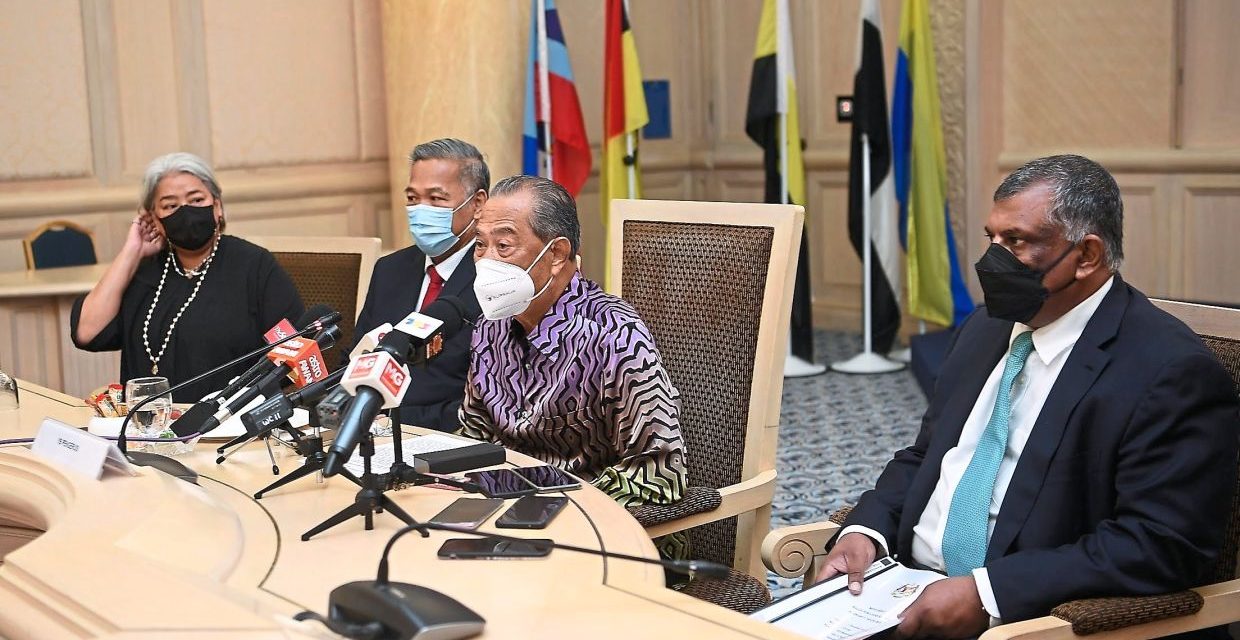KUALA LUMPUR| The government needs to look into resolving the acute labour shortage in the country as soon as possible as this is eroding the country’s competitiveness along with the ongoing economic recovery, says National Recovery Council (NRC) member Datuk Michael Kang.
For this purpose, Kang who was the president of the Small and Medium Enterprises (SME) Association of Malaysia, proposed that the government set up a “green lane” to fast-track the intake of foreign workers to meet the present acute labour shortage.
“This labour shortage is being experienced in all industries and it is holding back the economic recovery following the Covid-19 pandemic.
“Business opportunities are lost as orders are being redirected to other countries such as Thailand and Vietnam since companies here are not able to deliver on incoming orders,” Kang said at a media briefing on Friday.
He said this prolonged labour shortage is a serious matter, adding that there have been various instances of SMEs closing down as business owners kept losing money since they are not able to fulfil orders.
“A green lane would help expedite foreign worker applications – with an approval rate of at least 50%,” Kang said.
“Let’s say a company wants to apply for 100 workers – the government can automatically approve 50 workers first and for the other 50, it can go through the documentation process and determine if this part can be fulfilled or not.
“We need to do this so that factories can start operating again.
“One SME company told me they had 500 staff members, and now there’s only 50 staff members left. So, they are short of 450 workers and they have not been able to bring in any new workforce until today.”
Kang said the process to bring in foreign workers at present is encumbered by bureaucracy.
“If red tape can be reduced, then it would greatly help in stabilising this worker shortage that’s affecting industries.
“It’s not easy to bring in foreign workers as the companies have to submit all the documents, queue for an interview and they have to fulfil all sorts of criteria. This takes a long time.
“To submit the documents to book a slot for the interview itself takes three to six months. All these processes are very time-consuming. And since this is the case, companies will have a shortage of workers,” Kang explained.
NRC chairman Tan Sri Muhyiddin Yassin recently said that among the issues that is frequently being brought up by SMEs is the labour shortage in various industries especially within the agriculture industry.
He noted that the agriculture industry had reported a loss of close to RM20bil in 2021.
NRC was informed that about 1.15 million applications for foreign worker quota has been received for all economic sectors until September 2022 with an approval rate of 40.5% or 467,223.
Despite this 40.5% approval rate, NRC said it was informed that only 76,000 of these approved foreign worker applications had been successfully brought into the country until Sept 12, 2022.
Kang said he believes the reason why there is a continued lack of labour in industries is because the government is still working based on procedures which were in place prior to the pandemic when there was no such acute labour shortage.
“The government is not looking into this as part of its special recovery programme.
“They are still going back to their old ways – before the pandemic to recruit foreign workers where there is no special green lane to expedite and they would have to go through step by step to submit applications and fulfil all the criteria. Then once all these are done, then only an interview appointment is set,” Kang said.
He said there is currently a long queue for foreign worker interviews and acknowledged the government had opened up more centres recently to conduct these interviews from just one before in Putrajaya.
Meanwhile, the NRC said another pertinent matter that needs the government’s assistance and attention is the cashflow and liquidity issues faced by the SMEs.
According to the Entrepreneur Development and Cooperatives Ministry’s Business Pulse Survey Feb-Mar 2022 called Firm’s Recovery From Covid-19 in Malaysia revealed that only 39% of Malaysian companies have cash requirements of less than one month while another 23% of firms have issues with repayment of outstanding obligations.
The report also said 75% of companies had experienced delayed payments for goods and services by their customers by three months while 11% of companies have filed for insolvency.
The NRC said in its recommendation to the government, the way forward in helping SMEs resolve the issues pertaining to cashflow and repayment of obligations was through the establishment of the Special Action Committee on Cashflow and Financing Constraint Issues under the Entrepreneur Development and Cooperatives Ministry.
The NRC said it had also recommended to the government that banks be allowed to continue with their loan repayment assistance programmes to restructure, reschedule or put under moratorium for SMEs that still require such assistance.
“Even during the loan moratorium period, this is not interest-free. This is why we hope that the government can come up with a policy to help industries get a special six-month interest-free loan for businesses,” Kang said, noting that SMEs in the retail, tourism and construction need the most help in these areas.
Kang said while the government’s intentions to help industries with upscaling or digitisation incentives are good, this step still does not address the main issue that businesses are facing today.
“The businesses have the option to apply for a special loan to digitise or upgrade their operations. But the issue is that most SMEs don’t have cash and they don’t have money to invest in automation. So, they cannot take advantage of this loan,” Kang said.
“A lot of banks take the posture of – the business is negative for the last few years due to the lockdowns and they would say these SMEs are not eligible (for any loan). These are the issues that SMEs face.
“So, we need a special blanket approval or assistance for at least one whole year for them,” he added.
On another matter, Kang also suggested that the government take full advantage of the weak ringgit to promote tourism abroad, especially in the absence of China tourists currently.
“Why are tourists going to Singapore and not coming to Malaysia?
“We should open up our policies whereby those who go to Singapore can apply for a special visa or pass to come in to spend one or two weeks here. This would greatly boost our economy,” Kang said.









